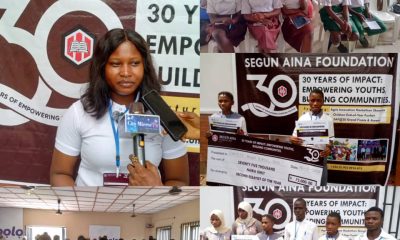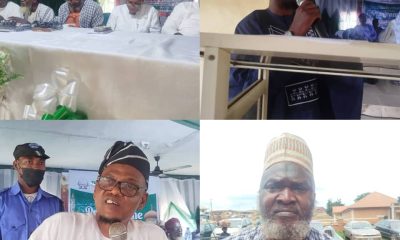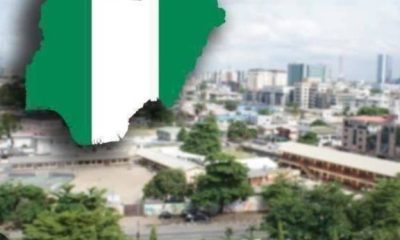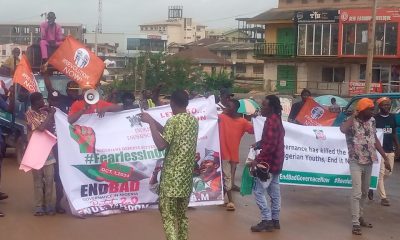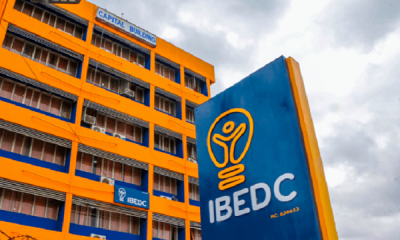News
Read The Essay That Earned OAU 500L Chemical Engineering Student, Abosede Land, Cash Prizes And Other Gifts From Osun State Govt
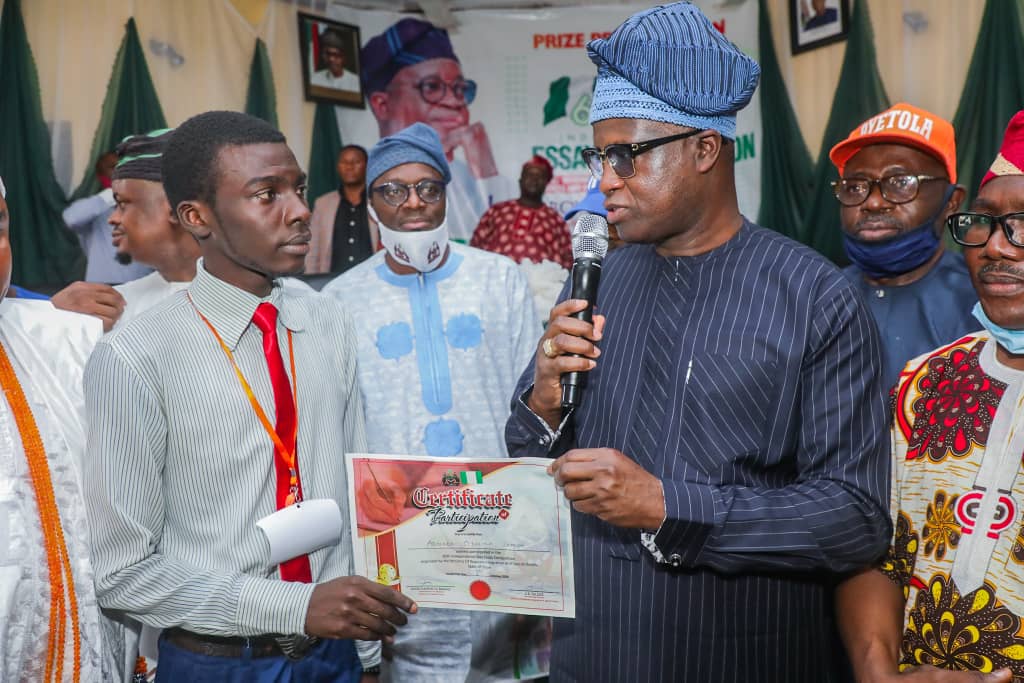
IMPACTS AND PROSPECTS OF COVID-19 ON THE ECONOMY By Abosede, Oyinlola Samson
Sometimes it gets so dark one can hardly imagine the possibility of stars being suspended in the skies. Still that doesn’t null the fact that somewhere beneath the depressing curtain of darkness, the stars do exist. When I first saw the theme of this challenge I was torn between disbelief and worry. Here was a challenge that did not require me to give solutions to the spate of violence and terrorism in the world today or to wipe out poverty with a flourish of my pen. Here was a challenge that requires me to put spotlight on the impacts and prospects of a sensational virus that has led to unprecedented disruptions in the country today thereby affecting all markets and economies.
I strongly believe Covid-19 will be remembered as the virus that stopped the world. We are living through a period that can only be described as the greatest act of solidarity in history, as people give up civic freedoms to save lives. And while we all agree that managing health crisis is our overwhelming priority, the social and economic consequences are, and will be dramatic in an already troubled nation.
However, Nigeria faces a greater challenge than most from the pandemic, as a result of being the largest economy in Africa, with a population of approximately 200 million people. While it’s no longer news that there has been an ongoing effort to curtail the spread of the virus, even as we still hope and await a vaccine to be produced, the economic uncertainties and disruptions present a real threat. With the dangerous health emergency in the country today, the economic impact of COVID-19 has been projected to be profound for Nigeria, especially with the fall in the price of crude oil (which has greatly affected the government revenue) and the general downturn in major sectors of our economy including construction, tourism, real-estate, manufacturing and aviation.
The High-Risk Scenario
I am a firm believer that closing down trade, requisitioning materials, or preventing supply to other nations will hobble everyone’s capacity to source adequate testing and treatment materials in an attempt to reduce the spread of the virus. The closing of borders and ripping up of international rules will make it even more difficult to restart trade and travel, heightening anger and anxiety. The COVID-19 crisis has exposed how many people even in some of the world’s richest countries, live in inadequate housing, without reserves of cash or food, and face difficulties in accessing government assistance.
Governments will face gigantic debts. Many households and businesses were already heavily indebted even before the pandemic started. I believe some countries will be able to raise funding through the capital markets, for instance the UK borrowed £45 billion in one month. Others will face ruinous rates for borrowing, just like Nigeria and some African countries have had their credit rating reduced to junk status. Investors will look for competent leadership, robust investment plans and robust institutions.
Most developing countries will be excluded. In short, a financial crisis is in the offing and without international cooperation; beggar-thy-neighbor policies are likely to deepen economic recession for all.
A Better Scenario
The truth is that we must begin to plan post-pandemic cooperation. I strongly believe there are two major tasks that must be confronted by our leaders in achieving a better scenario even as we celebrate our independence as a nation. First and most immediate is to fight the common enemy – now the virus – together. The second is economic reconstruction which has to do with the massive government debts and a broken global trading and investment system.
A Critical Appraisal
Fighting the virus together requires cooperation on three things: research and knowledge (working together to understand and beat the virus); maintaining global supply (trade ensuring efficient global supply of materials that are necessary); and warning against future outbreaks. For cooperation to work, we need to agree on common rules and empower an institution to oversee them.
The World Health Organization (WHO) exists to do this, but it is overstretched and underfunded. It needs to be properly funded to do its job. Consequently, the WHO must be supported, financed and empowered to do everything possible to point the world towards a virtuous circle of mutual trust and away from a vicious cycle of dog-eat-dog.
Economic reconstruction is a huge task that must be surmounted. In moving ahead in this post COVID-19 pandemic, debts had to be written down. Also, new flows of investment had to be found. The result was a massive reset delivering mass housing, health, employment and education. This may not be possible in 2020, but some changes occurring during the crisis could be built upon.
In Nigeria, for example citizen-powered welfare organizations and tech companies are stepping up to feed the poor. In the United Kingdom, high-end restaurants have stepped in to offer meals to hospital workers in the National Health Service. While across Europe, people have made a regular feature of singing and applauding the newly recognized “key-workers” (firefighters, garbage collectors and supermarket checkout operators), and many immigrants, most of whom are low paid.
The post covid-19 world will be shaped by decisions being made in the crucible of the fight against the virus. The profound uncertainty about the virus and its trajectory, and about how other countries will respond, only magnifies the importance of leadership. We must take it as our core duties to engage in the fight against this pandemic and we must do this without being distracted by political differences, but by focusing on the extraordinary challenges that lie within our borders.
Also, we must have it as our responsibility that security at home requires cooperation abroad. And finally, those that can, will need to invest in neighbors and in poorer parts of the world, for only together will their economies flourish.
What Next?
The biggest opportunity presented by COVID-19 is the chance to reset some of our economic approaches in a way that maximizes the chances of developing more resilient and sustainable approaches to globalization. Innovation and adaptation are particularly important when dealing with global challenges that threaten everyone, like pandemics and climate change. These are areas in which collective action is at its most important but often hard to achieve.
The Way Forward
In conclusion, I believe the COVID-19 crisis should also sharpen our thinking about climate change, reinforcing the fact that early intervention is vastly more effective and less costly than waiting until the crisis hits. Our responses to the virus have also demonstrated ways we can reduce our carbon footprints. For instance, by traveling less and video-conferencing more. Our responses, nationally and internationally, will determine whether we are able to learn from this crisis in order to forge a more resilient and sustainable approach to globalization.
We need to join hands to build this nation.
Yes, we can. Together we can!!!
Hurray, Nigeria is 60.
***Oyinlola Samson Abosede, is a 500L Chemical Engineering Department, Obafemi Awolowo University, Ile Ife. He’s from Iresi town of Boluwaduro LGA of Osun State
-

 News4 days ago
News4 days agoRamadan, Lent: Shettima Calls For National Unity And Compassion
-
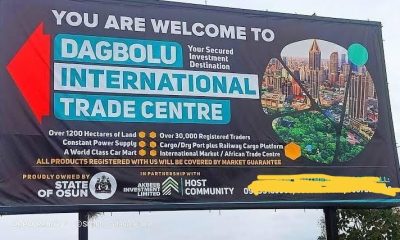
 Opinion4 days ago
Opinion4 days agoReinventing Osun’s Economy Through Dagbolu Intl. Trade Centre: From Quiet Market Lessons To Regional Trade Revolution By Adeboye Adebayo
-

 News4 days ago
News4 days ago‘Wike Factor’: Another PDP Chairmanship Candidate Steps Down For APC In FCT
-

 News3 days ago
News3 days agoInsecurity: Kogi Schools Resume On Monday



